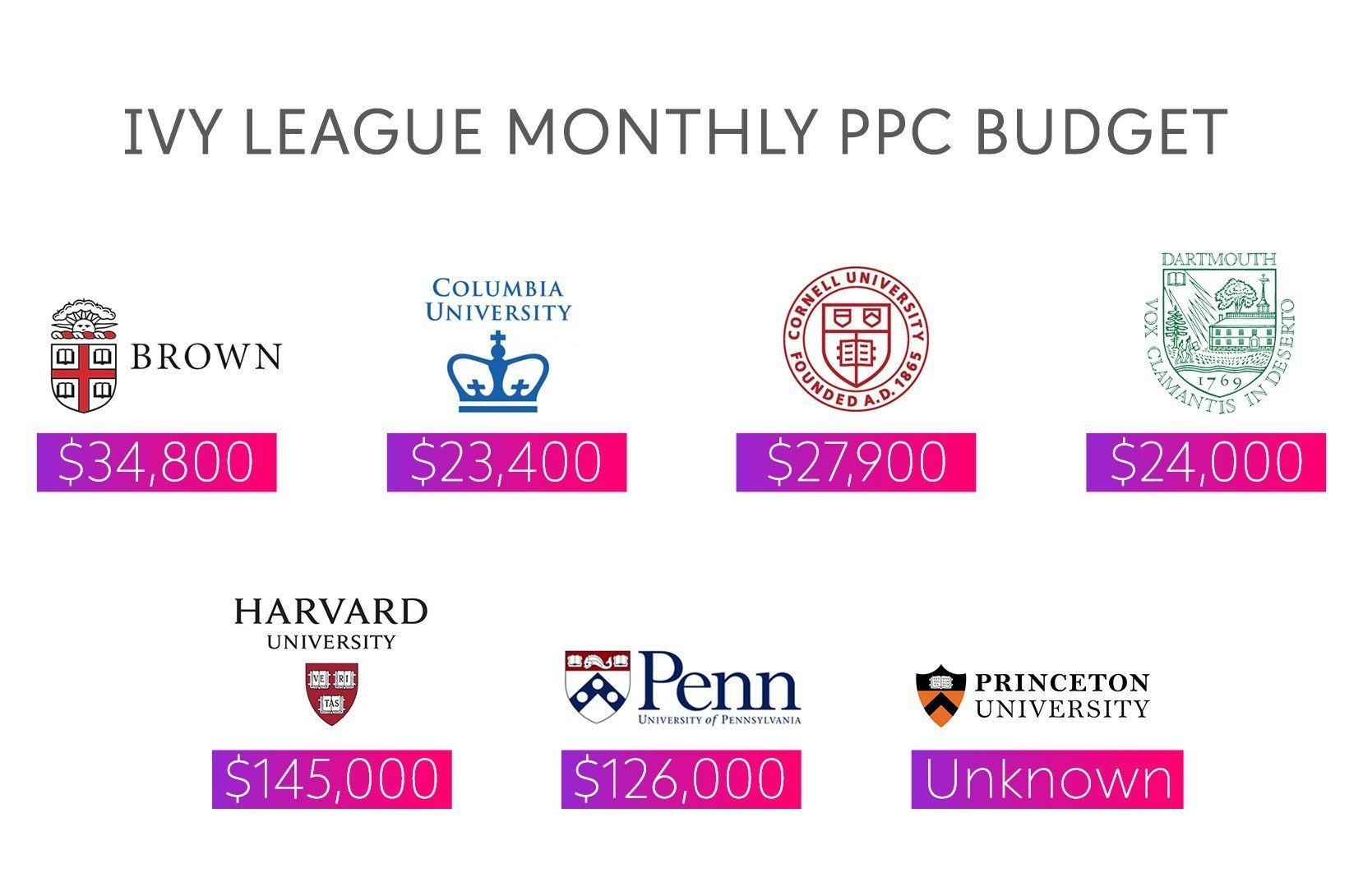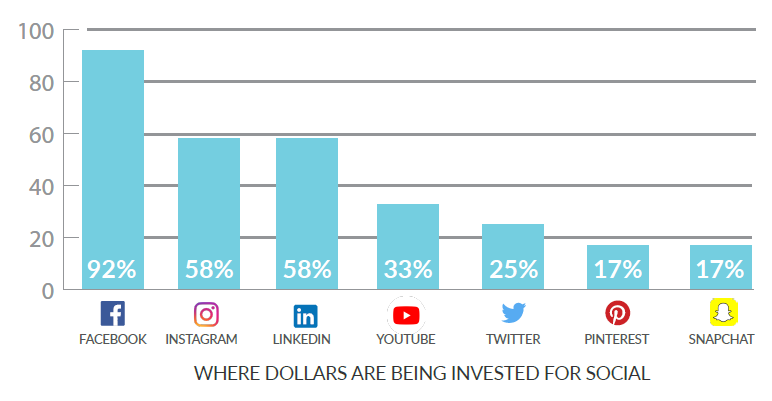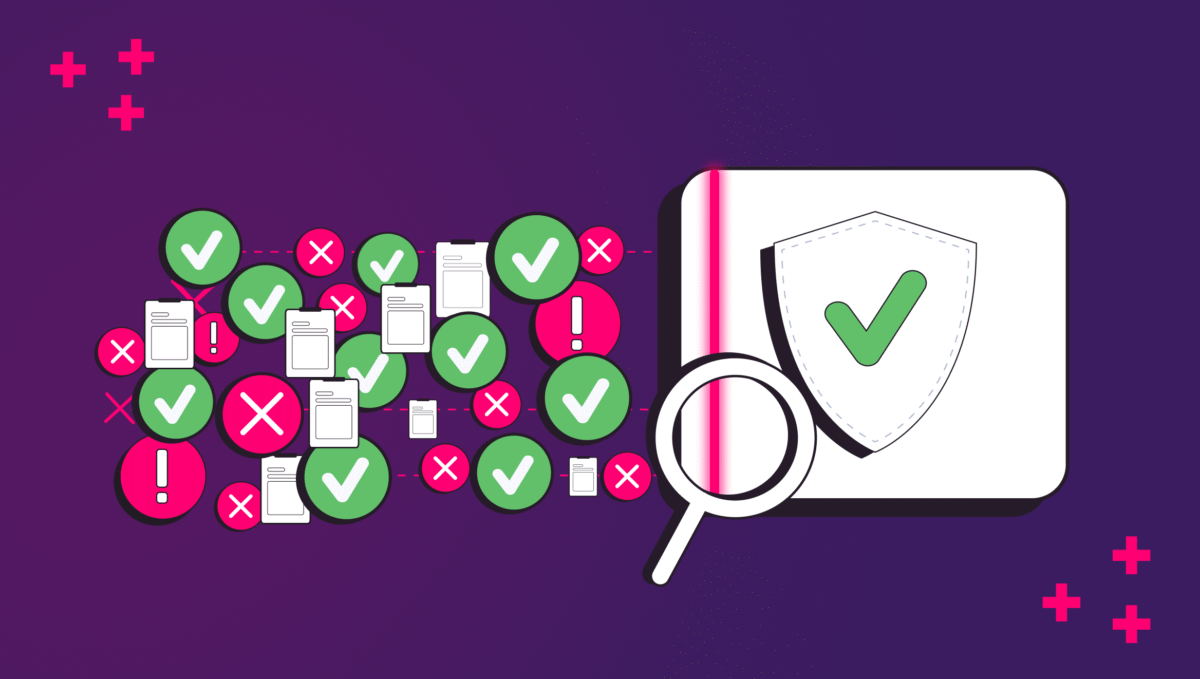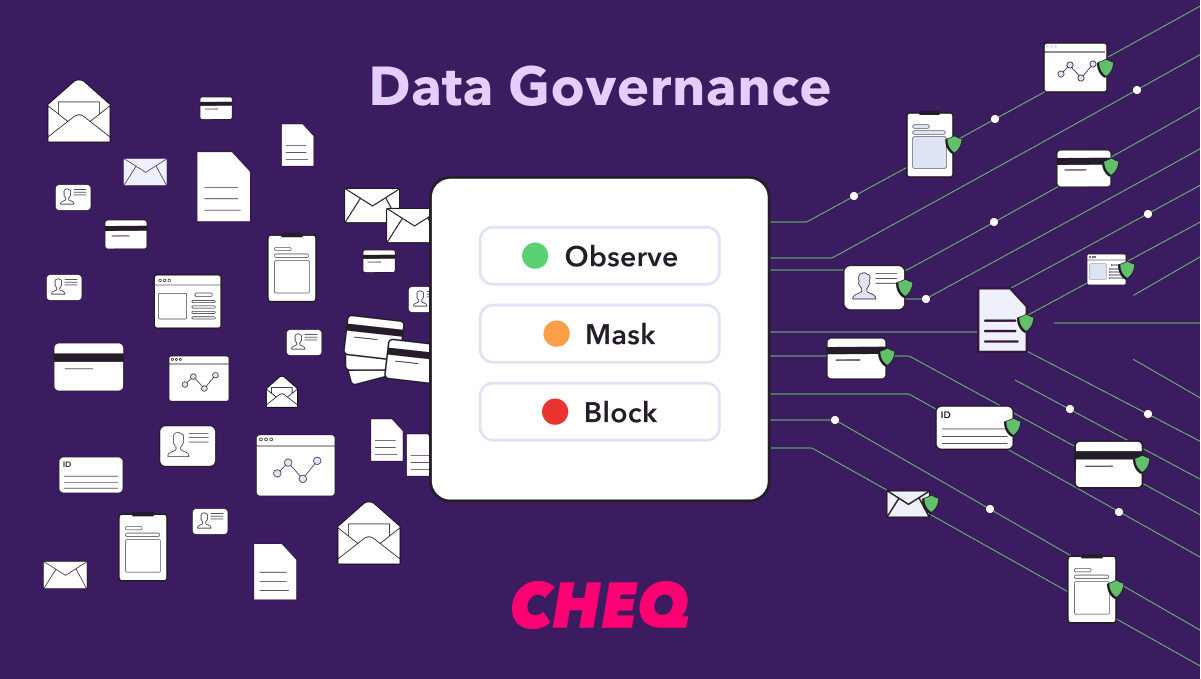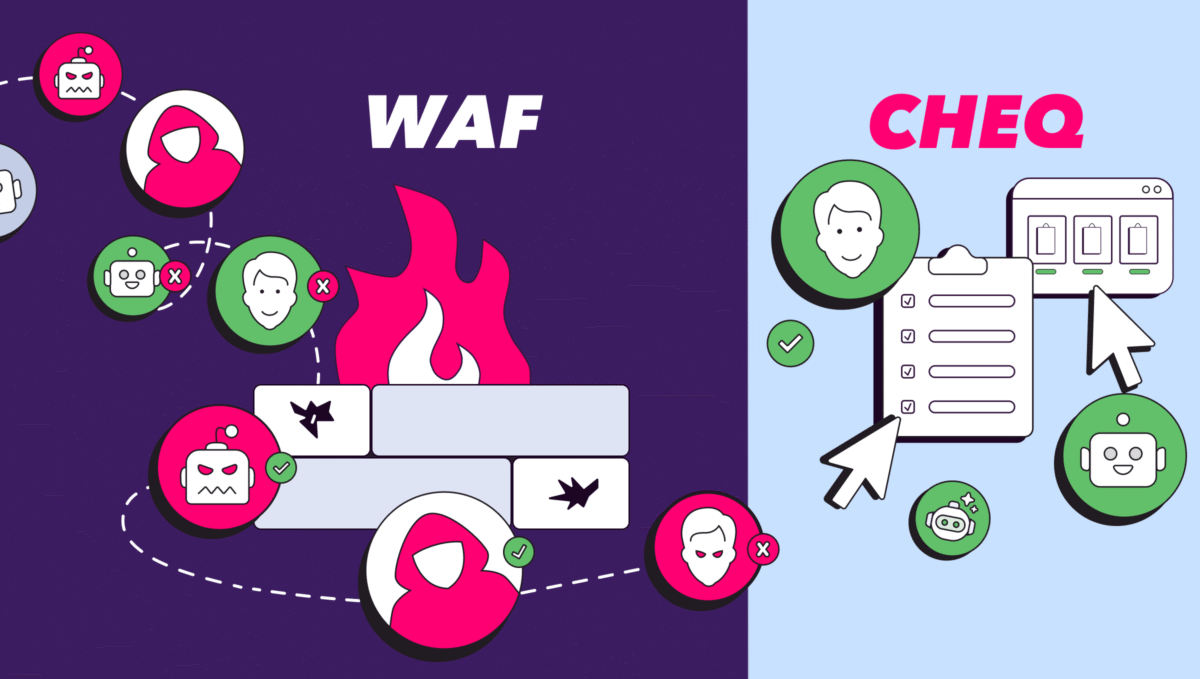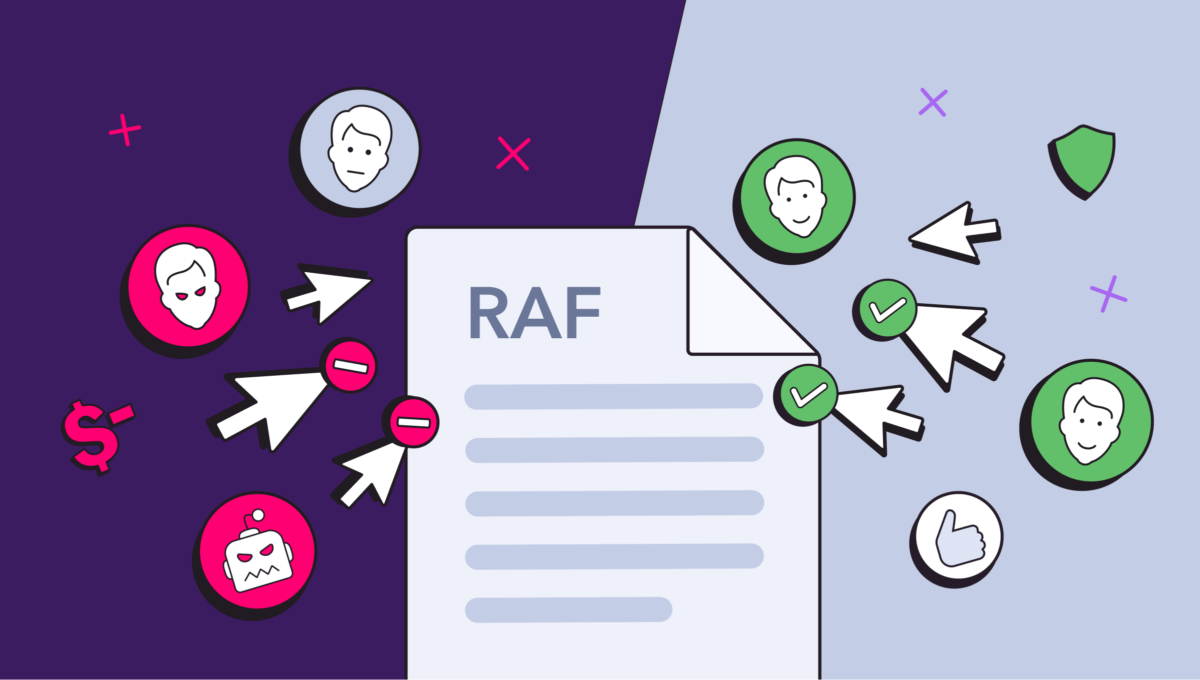How click fraud is costing education PPC marketers $892m in 2020
Jonathan Marciano
|Marketing | July 09, 2020

The goal of PPC education marketing is to enlist anyone from high school students figuring out their next steps in life, to those looking to tap into ubiquitous online learning. In all of these scenarios, paid advertising is crucial to any digital marketing plan.
The power of PPC marketing in this sphere is huge – 83% of education marketers say that PPC is a huge driver for their brand. The sector spends $2.7 billion annually on paid search and paid social spending. The majority of marketer’s plan to increase their budgets in both Google and Microsoft, as both are great platforms to advertise in for the education industry.
For instance, the Ivy League of PPC advertising looks something like this in terms of monthly PPC spend.
And a similar story for paid social media advertising
It is a similar story for paid social media advertising in education. Higher education marketers are not just spending on paid search, but also on paid social campaigns including Facebook, Instagram, YouTube, and Pinterest.
Click fraud accounts for 30% of clicks on education campaigns
However, with rising spending on paid search and paid social, education marketers are being targeted by rising click fraud. In a major study by the University of Baltimore, economists found that 30% of clicks on education marketing campaigns are fraudulent or invalid clicks. The study finds education marketers are set to lose a massive $892 million from these invalid clicks in 2020. The US makes up the largest portion of this loss, at $319 million.
What Exactly is Click Fraud?
The act of click fraud is when your paid links are clicked on with the intent to either deplete or divert your marketing budget. It’s often carried out either by direct competitors or by organized criminals. The latter often have a complex infrastructure set up to defraud multiple businesses, usually through the use of fake websites and automated bots. Most ad platforms refer to this problem as “invalid clicks”. This includes click fraud but also covers accidental clicks, automated activity such as web crawlers, and multiple clicks from the same source.
Which ad platforms does click fraud affect?
Although Google Ads is by far the biggest platform for PPC ads, it isn’t the only one that’s affected. In fact, click fraud is found in some form or another on most online advertising channels that education marketers are wading into, including Facebook, Microsoft (aka Bing Ads), Instagram, LinkedIn, and Twitter. Despite efforts from most of these platforms to block click fraud or to put processes in place to make it much harder, the challenges continue to grow.
Click fraud in education
Justin Chapman, VP, CanScribe Career college, the first private online career college in Canada points to click fraud as among his central challenges. He says: “One of the biggest challenges for us in the education sector has been click fraud. We advertise in Canada exclusively. After a few months, I looked at where our clicks were coming from and was blown away at how many were outside of Canada. We had clicks from people all over the world costing us hundreds of dollars. We have also faced a lot of “rapid clicking,” which was basically people clicking our ads over and over with no intention of requesting information.
“Not only did this cost us money in clicks, it also cost us in time. Our marketing team was spending time trying to find a solution to this problem, and our admissions team was spending time filtering through extremely low-quality leads and high-quality leads. Wasting budget is one thing, but having your team spend time on people outside of your geographic targeting is almost more costly. On certain keywords, I was spending up to $5.00 per click with essentially a zero percent chance of closing on them.”
Paid Search click fraud feasting on expensive keywords
Chapman’s point about how easily budgets can be extinguished by click fraud relates back to the high price of PPC keywords in education. To be at the top of Google or Bing can cost around $60 per click in education. For example, the phrase “online bachelor’s degree” in higher education costs $36.09 per click and has a search volume of 14,800 per month. “Harvard leadership course” costs $10.37 per click. A high intent keyword in higher education, like “online degree in business management” will cost you $72.24 per click on Google.
Click fraud rises when retargeting students
Education faces a lengthy “sales” cycle, making retargeting a feature of education PPC strategies. Naturally, students take several months, and potentially lots of clicks, before deciding on a major life decision, such as their educational establishment. This is where retargeting is very popular in education PPC – to keep your institution top of mind. However, as we see in many campaigns, with click fraud challenges, money is simply spent retargeting bots, rather than real students, and further money is lost on wasted clicks.
Indeed, we see, using CHEQ for PPC, how real-time heatmaps and bots interact with your site. This shows how visitors click, move, scroll browse, and pay attention on websites. It also reveals how bots are interacting with sites wasting advertising cash.
So, how can you stop click fraud on your PPC ads?
More and more education marketers are turning to click fraud prevention software such as CHEQ For PPC. While most anti-click fraud software focuses on Google Ads, CHEQ For PPC covers all of the biggest advertising platforms including Facebook, LinkedIn, and Microsoft. It also covers Baidu, China’s leading search engine, relied upon by marketers looking to recruit students in China.
CHEQ for PPC has been built by cybersecurity experts who are dedicated to preventing click fraud for large and enterprise companies. The benefit of ensuring you are not chasing bots, also ensures that junk leads do not infect your entire CRM and sales funnels.
With punishing PPC costs in education campaigns, any waste is heavily felt. For marketers, click fraud waste is among the fastest-growing reasons for poor converting campaigns. Without protection of this spend, despite years of spend and hard work, crucial PPC education campaigns will see budgets wasted and promising campaigns ultimately failing to get the grades.
Want to protect your sites and ads? Click here to Request a Demo.
